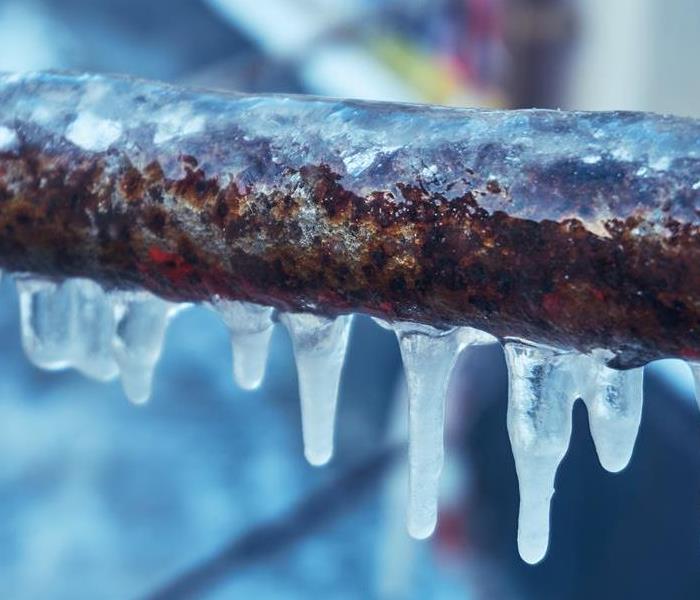Preventing Frozen Pipes
12/4/2023 (Permalink)
Frozen pipes are a common issue during cold winters, and they can lead to costly water damage and the need for restoration services. As a restoration company, we've seen the impact of frozen pipes on homes. In this blog post, we'll share expert advice on preventing frozen pipes to help you avoid this headache.
Insulate Vulnerable Areas
Insulating pipes in vulnerable areas of your home is a key preventative measure. Pay close attention to unheated spaces like attics, basements, crawl spaces, and garage areas. Insulating these pipes can help keep them above freezing temperatures.
Seal Gaps and Cracks
Any gaps or cracks in your home's exterior can allow cold air to seep in and affect the temperature in your walls and floors. Properly seal these areas to prevent drafts and maintain a stable indoor temperature.
Keep Your Home Warm
Maintaining a consistent indoor temperature is essential in preventing frozen pipes. Even when you're away from home, it's wise to keep your heating system running to ensure that the interior remains warm enough to prevent freezing.
Use Pipe Insulation
Pipe insulation is an excellent way to protect your plumbing. It's readily available at hardware stores and can be installed on exposed pipes in your home. This helps maintain the temperature of the water within the pipes.
Drip Your Faucets
On particularly cold nights, allow your faucets to drip slowly. The movement of water in the pipes can help prevent freezing. This is especially important for faucets along exterior walls and those in areas prone to freezing.
Monitor Your Home's Temperature
Consider installing a temperature-monitoring system in your home. This can alert you to significant temperature drops, allowing you to act before pipes freeze. Some systems can even send notifications to your phone.
Shut Off and Drain Outdoor Faucets
Before winter sets in, shut off and drain outdoor faucets and sprinkler systems. Disconnect garden hoses and store them indoors. This prevents water from freezing in the outdoor plumbing.
Open Cabinet Doors
On very cold nights, open the cabinet doors under sinks to allow warm air to reach the pipes. This is especially important for kitchen and bathroom sinks located on exterior walls.
Preventing frozen pipes is a proactive approach to protecting your home from potential water damage and the need for restoration services. By insulating, sealing, and maintaining your plumbing, you can reduce the risk of frozen pipes and ensure a worry-free winter. If your pipes do burst, contact SERVPRO and our teams of specialists will have you back to normal as soon as possible.





 24/7 Emergency Service
24/7 Emergency Service
